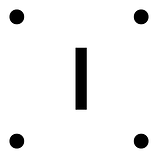The Bright Light of the Internet
As we find ourselves in dark times, it’s up to us to shine a light on the next phase of the internet
 I embraced social media early and indiscriminately. With ardent curiosity beginning with Twitter in 2007, I collected profile pages like trophies, staking my user name and avatar into every new social territory I could find.
I embraced social media early and indiscriminately. With ardent curiosity beginning with Twitter in 2007, I collected profile pages like trophies, staking my user name and avatar into every new social territory I could find.
I did this like it was my job. In a way it was: I figured I should know how other design teams were inventing novel ways to gather communities online. Only now do I see these platforms weren’t just building communities, they were establishing products on the backs of communities at the expense of privacy.
Now, in 2019, things have changed. Design ethics conversations are frequent. We have elevated the “product designer” job title as if everything we design is now a product. I’m complicit in that productization of the internet (aren’t we all?). Russian meddling and the rise of deepfakes have opened our eyes to how indiscriminate sharing can hurt society at large — in particular the vulnerable. There have been so many brilliant exposés on these topics that I’m embarrassed it took me this long to wake up.
